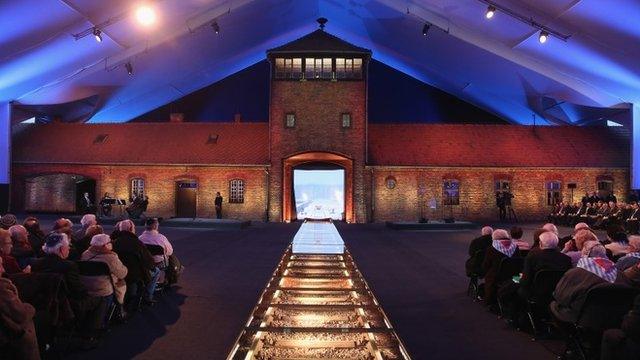Trial date set for 'Auschwitz bookkeeper' Groening
- Published
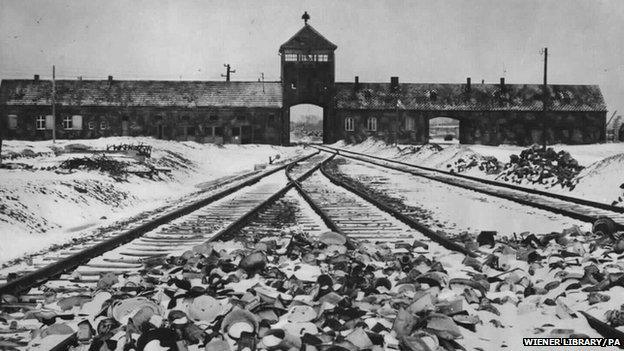
Prosecutors say Oskar Groening knew that prisoners were murdered directly after their arrival at Auschwitz
A former Nazi death camp guard will go on trial in Germany in April charged with at least 300,000 counts of accessory to murder.
Oskar Groening, 93, who was known as the "bookkeeper of Auschwitz", was allegedly responsible for counting banknotes confiscated from prisoners.
He faces charges over 425,000 people sent to Auschwitz in occupied Poland between May and July 1944.
About 1.1 million people were murdered at the camp, most of them Jews.
The trial will take place in the north German city of Lueneburg. Fifty-five survivors and victims' relatives are plaintiffs in the case, and many are likely to attend the trial.
Prosecutors in Lueneburg allege that as well as counting money, Groening also hid victims' luggage away from new arrivals, to disguise the victims' fate.
A statement from the prosecutors' office said that the former guard was aware that those deemed unfit to work at the camp "were murdered directly after their arrival".
'I saw the gas chambers'
Groening, who began work at Auschwitz aged 21, does not deny witnessing the mass killing at Auschwitz. In 2005 he told the BBC, external: "I saw the gas chambers. I saw the crematoria. I saw the open fires. I was on the ramp when the selections [for the gas chambers] took place.
"I would like you to believe these atrocities happened - because I was there."
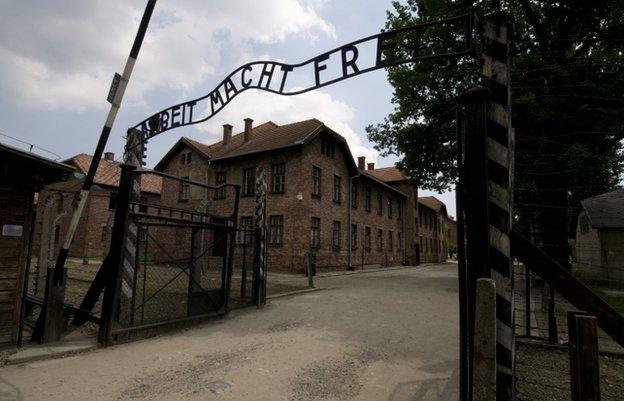
The notorious Auschwitz camp gate, with the inscription "Arbeit Macht Frei" ("work makes you free")
Last week the world commemorated the 70th anniversary of the liberation of Auschwitz by the Soviet Red Army.
Prosecutors in Hamburg are also investigating a 93-year-old woman suspected of having served as a Nazi SS guard at the Bergen-Belsen camp.
Hilde Michnia (born Liesewicz), a resident of Hamburg, allegedly helped evacuate the Gross-Rosen camp as Allied forces approached, forcing prisoners on a march which killed around 1,400 of them.
The investigation into Michnia's alleged involvement began after a private citizen filed a complaint against her, a spokesperson for the prosecution said.
She denies the allegations. She told Germany's Die Welt newspaper, external on Sunday that she was not involved in any atrocities and only worked in the camps' kitchens.
There have been renewed efforts to bring concentration camp guards to justice after a 2011 court ruling that allowed prosecutors to charge people with complicity in the Holocaust - not only those accused of mass murder.
The ruling saw John Demjanjuk sentenced to five years in prison for involvement in the killing of Jews at the Sobibor camp, where he had served as a guard.
About 1.1 million people, mostly European Jews, were killed at Auschwitz-Birkenau between 1940 and its liberation on 27 January 1945.
Related topics
- Published27 January 2015
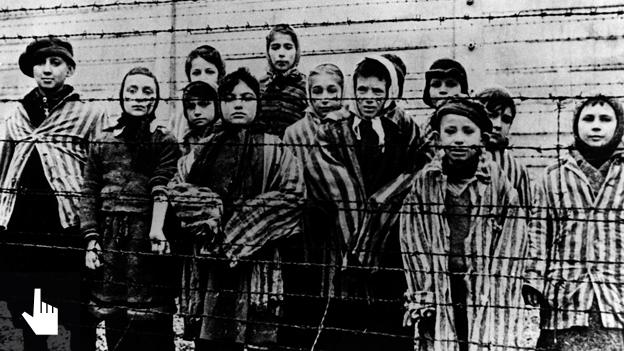
- Published27 January 2015
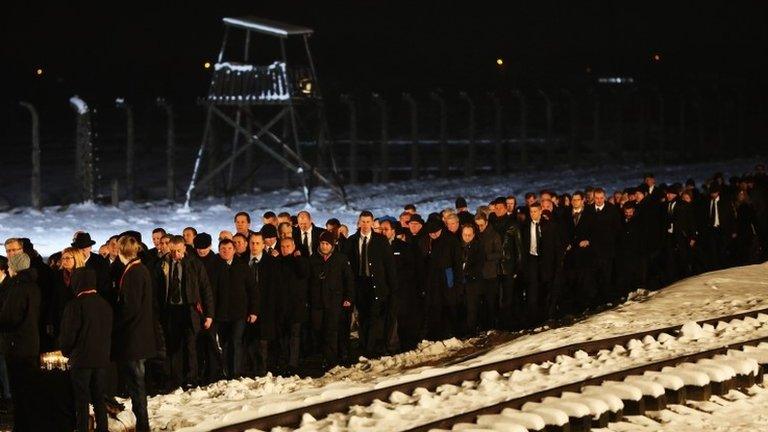
- Published28 January 2015

- Published27 January 2015
